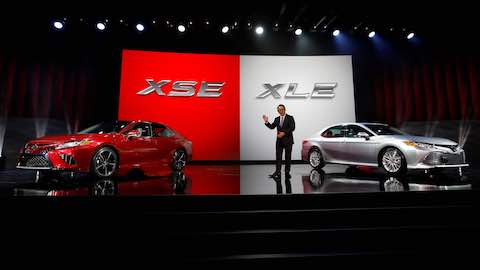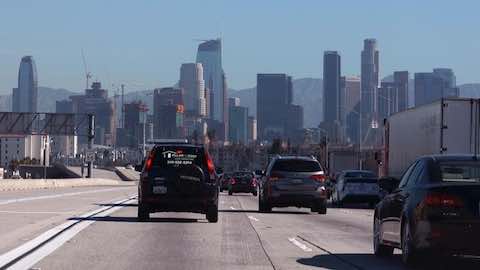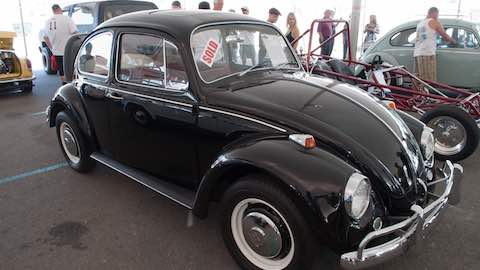- MENU
- HOME
- SEARCH
- WORLD
- MAIN
- AFRICA
- ASIA
- BALKANS
- EUROPE
- LATIN AMERICA
- MIDDLE EAST
- United Kingdom
- United States
- Argentina
- Australia
- Austria
- Benelux
- Brazil
- Canada
- China
- France
- Germany
- Greece
- Hungary
- India
- Indonesia
- Ireland
- Israel
- Italy
- Japan
- Korea
- Mexico
- New Zealand
- Pakistan
- Philippines
- Poland
- Russia
- South Africa
- Spain
- Taiwan
- Turkey
- USA
- BUSINESS
- WEALTH
- STOCKS
- TECH
- HEALTH
- LIFESTYLE
- ENTERTAINMENT
- SPORTS
- RSS
- iHaveNet.com: Auto Industry News
Agriculture | Airline | Auto | Beverage | Biotech | Book | Broadcast | Cable | Chemical | Clothing | Construction | Defense | Durable | Engineering | Electronics | Firearms | Food | Gaming | Healthcare | Hospitality | Leisure | Logistics | Metals | Mining | Movie | Music | Newspaper | Nondurable | Oil & Gas | Packaging | Pharmaceutic | Plastics | Real Estate | Retail | Shipping | Sports | Steelmaking | Textiles | Tobacco | Transportation | Travel | Utilities
3M (MMM) | AT&T (T) | AIG (AIG) | Alcoa (AA) | Altria (MO) | American Express (AXP) | Apple (AAPL) | Bank of America (BAC) | Boeing (BA) | Caterpillar (CAT) | Chevron (CVX) | Cisco (CSCO) | Citigroup (C) | Coca Cola (KO) | Dell (DELL) | DuPont (DD) | Eastman Kodak (EK) | ExxonMobil (XOM) | FedEx (FDX) | General Electric (GE) | General Motors (GM) | Google (GOOG) | Hewlett-Packard (HPQ) | Home Depot (HD) | Honeywell (HON) | IBM (IBM) | Intel (INTC) | Int'l Paper (IP) | JP Morgan Chase (JPM) | J & J (JNJ) | McDonalds (MCD) | Merck (MRK) | Microsoft (MSFT) | P & G (PG) | United Tech (UTX) | Wal-Mart (WMT) | Walt Disney (DIS)
- Ad Spending Verticals
- The Best SUV Brands
- World's Most Expensive SUV
- Driverless Cars Gear Up for the Future
- Car Tech Trends at CES
- Future of the Connected Car
- Google's Self-Driving Cars
- The Green Road: Fuel Efficiency
- Top Themes at the Detroit Auto Show
- What Car Dealers Won't Tell You
- The Most Obnoxious Car Features
- Best Cars for Teen Drivers
- The Fewest Vehicles Recalled
- Self-Driving Cars Steal the Show
- The Longest Produced American Cars
- Futuristic Driverless Cars
- The Green Road: Electric vs Hybrid
- Cost of Car Insurance By State
- Move Over Tesla, Elio Is Here
- Gas Engine Cars to Decrease Big-Time
- Green Cars Report: Toyota Mirai
- Lamborghinis Fight Crime
- Electric Mobility Has a Long Way to Go
- World's First Printed Car
- 3D-Printed Car Being Built
- Volvo to Sell Cars Like Tesla
- Largest Auto Recalls of 2016
- Driving Innovation: Local Build
- Latest Minivan Crash Tests Aren't Pretty
- Malibu: GM's Most Recalled Car
- Is This The Future Of Driving?
- The Allure of the Van
- Will the Chevy Volt Catch On?
-
For the first time, Mercedes is bringing a fully electric car to the U.S. WSJ's Nathan Olivarez-Giles takes the B-Class for a spin
-
The new Chinese automotive brand Qoros presented its first series production vehicle, the Qoros 3 Sedan, at the Geneva International Car Show
-
In an effort to to stem losses with its European business in the midst of an extended auto market contraction, General Motors said that it will stop producing Opel cars in its Bochum, Germany
-
Analysts say pent-up demand has primed the pump for a banner year in auto sales
-
For decades, teenage boys were considered to be riskier drivers than teenage girls. But several new reports suggest that perception may be changing as girls are more readily taking risks while driving
-
The nation's grid is ready. Your neighborhood's power supply might be another story
-
Technological advancements have made driving than it has ever been. But as auto manufacturers imagine the future, they'll need to worry about something else -- electronic malfunctions and cyberattacks
-
President Obama called America the 'Saudi Arabia of natural gas' and said the country should start using natural gas to power more cars and trucks
-
Buyers of traditional luxury brands are more open to lower-priced alternatives than you might think. What they found once they owned a luxury car was it didn't change their life
-
The American auto industry is rejuvenated. It is producing world-class vehicles that are proving to be surprisingly competitive with vehicles from top-rated names, like Honda and Toyota. So you want proof? The following is a quick look at some of the best new offerings from each of the Big Three domestic manufacturers
-
Toyota Motor Corp. (TMC) has announced plans to export cars manufactured by its subsidiary in India to South Africa
-
Red-light running killed 676 people and injured an estimated 113,000 in 2009. One of the cruelest aspects of this problem is that nearly two-thirds of the deaths were people other than the drivers who ran the red lights. What to do about the problem?
-
A lot of words have been said and written about ethanol. Some say it is the solution to our reliance on imported oil. Others suggest that, as a green solution to our fuel and carbon dioxide emission problems, ethanol is a sham. But relatively few have talked or written about how corrosive ethanol is
-
Millions of Americans have a loved one over the age of 70. With one in five Americans caring for an older relative, the number of adults concerned about their parents' driving abilities is on the rise. The key question that has to be asked: When do you pull the keys?
-
It's been worrisome enough that the drivers around you might be applying makeup, eating, talking on the phone, or texting. Now the guy in the next lane could be reading Zagat restaurant reviews on his GPS or, soon, updating his Facebook status. Carmakers continue to stuff new models with distracting devices. But companies are also adding technology to prevent driver distraction
-
Many consumers are still on-edge. They're saving more and living more frugally than before. The worry remains that they, like some people they may know, could be out of a job at any time. This is bad news for the car industry, but it might be the ideal time to buy a new car if you feel secure in your finances and are in need a new vehicle
-
Is the American market ready for a small Cadillac? Even in today's frugal economic climate, those buying cars opt for large vehicles. Crossovers and even SUVs are relatively hot right now, while small cars and hybrids are languishing -- yet in this climate, Cadillac has floated what it calls the Urban Luxury Concept
-
Ford and Toyota typically compete tooth-and-nail in the world's auto markets, but in a startling turn of events the two mammoth companies have announced that they will collaborate as equal partners to develop and market a new advanced hybrid system for light trucks and SUVs
-
General Motors announced that it has entered into a joint venture with a Chinese automaker to develop electric cars. The deal also involves transfer of battery and other electric vehicle technology
-
Japanese auto brands recapture the lead in key customer satisfaction survey, which puts American recovery in doubt
-
We recently had the opportunity to participate in an event sponsored by Ford Motor Company that demonstrated how intelligent vehicles that wirelessly talk to each other could be effective in reducing crashes
-
The Obama administration is proposing a 56-mpg fuel economy requirement by 2025. Should the regulations be imposed, the world's automobile companies will have to figure out a way to not only build vehicles that can deliver 56-mpg performance, but also persuade enough Americans to buy them. Auto industry experts agree that the latter is much more difficult to accomplish than the former
-
The use of alternative fuels in passenger cars is still being questioned, but one unexpected place where alternative-fuel use is gaining traction is in the transit bus sector.
-
It may not be happy days again for the auto industry and its shareholders, but there is light at the end of the highway. High fuel prices have boosted sales of smaller cars, while luxury brands have been energized by improving economies and strong Chinese demand
-
If you think paying $4 for a gallon of gas is ridiculous and long for the days when gas cost a quarter, consider this: 93 years ago you could pay just 25 cents and drive away in your Oldsmobile or Studebaker with a gallon of gas. However ...
-
The year 2013 is still way off in the distance for most of us, but Ford used the New York International Auto Show as a venue to introduce its 2013 model year Taurus and Taurus SHO, two very important models in its portfolio. Since General Motors took the same opportunity to show its 2013 Chevrolet Malibu, you can understand why Ford was willing to pull the wraps off the Taurus early
-
For a long time, Toyota had everything going its way. Its vehicles were adored by the American public and revered overseas. It was acknowledged as the automotive-technology leader. However, Toyota's unintended acceleration and safety recall problem threatened the very core of the company. Can Toyota recover?
-
Navigation, music, video and information systems in new cars are the rage. Consumers who are used to instant connectivity and a variety of entertainment choices at home and in the office are electing to have similar options in their cars
-
Sibling rivalry can often be a terrible thing, but in the case of the new version of the Audi A6 sedan -- introduced to the press at the North American International Auto Show -- it can be just great. We say that because the new A6 takes a lot of what is so good about the flagship A8 and it folds it into a more affordable, accessible package
-
Sales of electric cars will skyrocket in the next five years, according to a new study conducted by Pike Research, which specializes in research in that area
-
President Barack Obama's recent address on the fuel situation gave hope to advocates of electric cars, natural gas and, as we told you last week, propane. But it offered little solace to those in America's heartland who are the biggest promoters of ethanol
-
If you throw a line in the water and a fish bites, do you think you'll make a catch every time you go fishing? You may be wondering what this has to do with cars and fuel prices. Well, if you look at the trends over the past several decades, you'll see that consumers are unsophisticated when it comes to dealing with fluctuations in fuel price. Our present situation is a case in point
-
Prospects are good for Ford, although the auto industry is cyclical, meeting higher fuel standards is expensive, and labor will look to gain from the company's improved fortunes
-
Auto industry experts and the general public are agreed on one thing: Ford Motor Company is on a roll. So it is unsurprising that the prestigious 2011 Automotive Executive of the Year Award will be presented to Alan R. Mulally, president and CEO of Ford Motor Company
-
In 1911, if you asked Billy Durant -- the prototypical American promoter/businessman -- if Chevrolet Motor Company would sell 180 million vehicles by 2011, he probably would have said, 'Damn right it will.' That was just the kind of guy William C. Durant was. Durant co-founded Chevrolet with race driver Louis Chevrolet on Nov. 3, 1911
-
If you are a senior on a limited income, you obviously view rising fuel costs as an ominous development. Now, a senior citizen's advocacy group called the Association of Mature American Citizens (AMAC) has called on President Barack Obama to take immediate action to stem gasoline prices that have been on the rise for the past several months.
-
The most remembered State of the Union Addresses are the ones that inspire and challenge us. Today, America needs to be challenged and inspired. I believe today's challenge rests in clean and affordable energy and the inspiration to achieve it can come through a speech coupled with a call to action. The key to prosperity lies in innovation and invention
-
A lot of words have been said and written about ethanol. Some say it is the solution to our reliance on imported oil. Others suggest that, as a green solution to our fuel and carbon dioxide emission problems, ethanol is a sham. But relatively few have talked or written about how corrosive ethanol is
-
Millions of Americans have a loved one over the age of 70. With one in five Americans caring for an older relative, the number of adults concerned about their parents' driving abilities is on the rise. The key question that has to be asked: When do you pull the keys?
-
The Ford C-Max, just introduced at the Detroit auto show, will be offered with a bewildering number of powertrains -- and it will likely make headlines, as it marks Ford Motor Company's return to the minivan wars. But the seven-passenger C-Max is only one of the wide varieties of C-Max multi-activity vehicle models that will come to market here over the next two years
-
Hybrids, electrics and other alternative vehicles are dominating automotive news these days. And you might think the gasoline engine is headed down the path of the passenger pigeon. But that impression is very wrong. Frankly, there's both positive and negative news on electric car sales
-
Globally, propane is the most widely used 'alternative' car fuel -- and for good reason. Propane fuel is abundant, relatively inexpensive and sourced in North America. It also burns clean. However, these arguments have largely fallen on deaf ears as govenrment officials seem intent on vehicle electrification at the expense of other technologies. Many auto experts believe this is a shame
-
The Chevrolet Volt may or may not be an electric car, depending upon whom you ask. But it certainly became a lightning rod of controversy during this past election season
-
How do you change behavior? By giving an incentive to change. And that's exactly what the National Highway Traffic Administration has done over the past 32 years with its New Car Assessment (NCAP) Program.
-
At first glance, the new ethanol rules drafted by the Environmental Protection Agency (EPA) might seem to be a bold step toward increasing consumers' use of this renewable fuel. But a deeper look shows that, while the new regulations appear to favor increased use of the biofuel, the finer points of the rules will likely mean little expansion of ethanol use
-
The drumbeat of splashy TV advertising and reports in the media has created an awareness of electric and other alternative-fuel vehicles in the general public, but most people admit that they don't know all that much about the new technologies
-
If you have champagne tastes and a beer budget, your crossover choices have been limited to some stalwart -- but unexciting -- choices like the Ford Escape. Now -- based on a long, hard look at the Ford Vertrek compact crossover concept just introduced at the North American International Auto Show -- we can report that things will change.
-
Toyota is recovering from the scandal of its cars' unintended acceleration and other recent headline-making problems. But to avoid similar issues in the future, the legendary company must return to the basic principles that made it so successful
-
If you're about to buy a new electric or plug-in hybrid vehicle, you should think seriously about where you're going to plug it in. Though many of the upcoming cars will plug into standard 110-volt sockets, you're liable to find the recharging time agonizingly slow.
-
Despite the sales doldrums that haunt America and reverberate worldwide, global automakers have put together some very, very interesting vehicles for the 2011 car-model year. In fact, one might accurately state that the most-anticipated of the 2011 cars are among the most interesting vehicles launched in the past 50 years. Let's take a look at them, shall we?
-
Two words are on the tip of the auto industry's tongue these days: electric cars. Nissan is currently a media darling on the strength of its LEAF battery-electric car. Ford is building buzz with its Ford Transit Connect and Ford Focus battery-electrics. Meanwhile, GM is about to enter the competition with its Chevrolet Volt. All of which leaves Toyota behind the curve in battery-electric cars.
-
We live in an era when press and politicians tout the wonders of the electric car. We're on the cusp of Nissan's salvo in the electric car arena, and if you believe the pundits, electrics are the wave of the future. So it must have come as a major shock when the winner of the most important Progressive Automotive XPRIZE category was a car powered by an internal combustion engine




